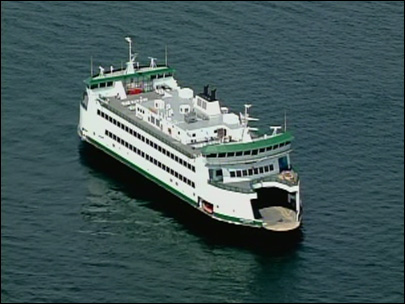By JONATHAN KAMINSKY
The Associated Press
OLYMPIA — Under a proposal receiving a hearing in the state Senate Transportation Committee, ferries plying the Puget Sound would no longer have to be built in Washington state, fewer apprentice workers would be involved in building them and the state would limit the money it pays for cost overruns.
Taken together, the proposed changes are intended to bring down the cost of buying and building new ferries to be integrated into the aging white-and-green painted fleet in the wake of a recent state auditor’s report finding that ferries built in Washington state can cost as much as 40 percent more as those built elsewhere.
Sen. Curtis King, R-Yakima, co-chair of the Senate Transportation Committee and the bill’s sponsor, conceded after Tuesday’s hearing that he did not expect it to “jump up and run out of this committee” with broad support.
However, he added, “we need to have a conversation about this. We really need to look at why do we pay what we pay.”
There are currently two new Washington state ferry boats under construction, each with room for 144 cars. House Democrats last week unveiled a transportation revenue package that included $123 million in bonds for a third such ferry, and the state has an option to purchase a fourth.
Sen. King said he does not intend for his bill to affect the pending 144-car ferries.
Rather, he said, it is an attempt to look at how the state can bring down costs going forward while continuing to provide the ferry service that carries 22 million people and 10 million vehicles across the Puget Sound each year.
Nine of the state’s 22 ferries are at least 40 years old.
Currently, the state’s Department of Transportation sets aside as much as 20 percent of a new ferry’s cost for so-called change orders, in which the shipbuilder does work not outlined in the original contract.
The bill would limit that amount to five percent, and would require the state’s Office of Financial Management to sign off on such orders.
Apprentice builders are under current law required to make up 15 percent of the workforce for the building of new ferries — though the 144-car ferries now being built are not covered by that rule. Under the measure, that number would be reduced to 5 percent.
Separately, the House Transportation Committee on Tuesday heard a pair of bills intended to increase oversight of how the ferry system is run and to look for ways to bring down costs.
Any bills affecting the state ferry system would need to be passed by both the state House and state Senate before they could become law.

